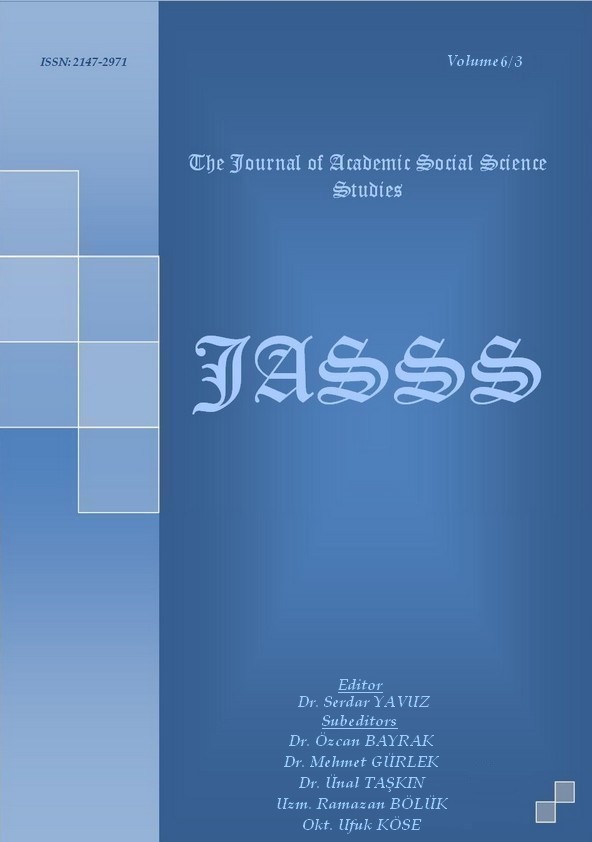Author :
Abstract
Âd, on sekiz sûrede bir kısım peygamber kıssasında anlatılan, helâk olan kavimler arasında yer alan, hakkındaki tarihî bilgiler Kur’ân’da dağınık halde bulunan bir kavimdir. Bu isim mana bakımından onun ahvâline uygun bir anlam ifade eder. Âd kelimesi, Kur'ân'da yirmi dört âyette geçer ve konunun anlatıldığı âyet sayısı elli dokuzu bulur. Hûd isminin geçtiği âyetler de dikkate alınınca konuyla ilgili âyet sayısı yetmiş bire ulaşır. Allah Âd kavmine Hûd’u peygamber olarak göndermiştir. Ancak, Âd kavminden çok az insan Hûd’a inanmıştır. Her şeye rağmen Hûd, onlara rehberlik etmeye ve Allah'ın mesajını iletmeye devam etti. Kavmi tarafından yapılan tehdit ve baskılara rağmen inancından geri dönmemiş aksine onlara karşı çıkmıştı. Çünkü Hûd, Allah’tan aldığı sonsuz güven ve itminanla yaptığının ve söylediğinin kesinlikle doğru olduğuna inanıyordu. Hûd Peygamber’in kabilesi, uyarıları dikkate almadığından Allah tarafından önüne geçilmez şiddetli bir rüzgar, yıldırım, şimşek ve depremle yok olup gitmiştir. Bu çalışmayla, vaktiyle Arap Yarımadasının güneyinde yaşamış olan Âd kavminin, güçlü, zorba, inkârcı, atalarının gelenek ve inançlarına sıkıca bağlı, eski bir millet olduğu ortaya çıkmıştır. Âd’ın başına gelen felâkette, onun menfi inancının, tutumunun, davranışının son derece etkin olduğu gerçeği temâyüz etmiştir. Ayrıca kendilerine özgü tavırlarını devam ettirmeleri onların çok tutarsız ve mantıkısız oldukarını göstermiştir. Âd kıssasında, her inkârcıya, maddeciye, zorbaya ve Yüce Allah’a baş kaldırana, yok edilen Âd’ın tutumu ana çizgileri ile verilerek uyarı yapılmakta, onun durumuna düşülmemesine, haktan yana tavır alınarak zorbalığa karşı çıkılmasına dikkat çekilmiştir.
Keywords
Abstract
Aad is a tribe which is told in some prophet parables as one of the destroyed tribes and whose historic information is sprawled in Quran. This so called name, by means of sens, states an appropriate significance to its condition. The word Aad taks part in Quran in twenty-four verses and the number of verses in which the situation is told hits to fiftynine verses. When taken into consideration the name Huud the number of verses connected with the subject reach to a number of seventyone. The God sent them Huud. But, very few people had believed in him. Despite everything, Huud had continued to guide them and communicate the message of the God. He hadn't surrender to their threats and pressures on him and on his believeres, on the cotrary, he had challenged them. Because he believed that what he did and what he said is true. Moreover, he had an infinite confidience in the God. His tribe, did not consider his warnings, and was destroyed by means of inevitable and strog whildwinds, earthquakes and violent thunder bolts by the God. This work has shown that the Aad which once lived in the south of the Arabian Peninsula were an old nation who were potent, tyrant, denier, and who were strictly devoted to their ancestors' beliefs and traditions. The disaster that happened to the Aad has come the truth to the fore which is the negative belief, attitude, and behaviours of the Aad are in the ascendant. Furthermore, keeping up with their distinctive attitudes has shown that the Aad were inconsistent and irrational. The Aad parable outlines the destroyed Aad's attitudes and warns every denier, materialist, tyrant and insubordinates to the Almighty Allah for not to fall into the situation of the Aad and to stand by right and to stand against tyranny.
